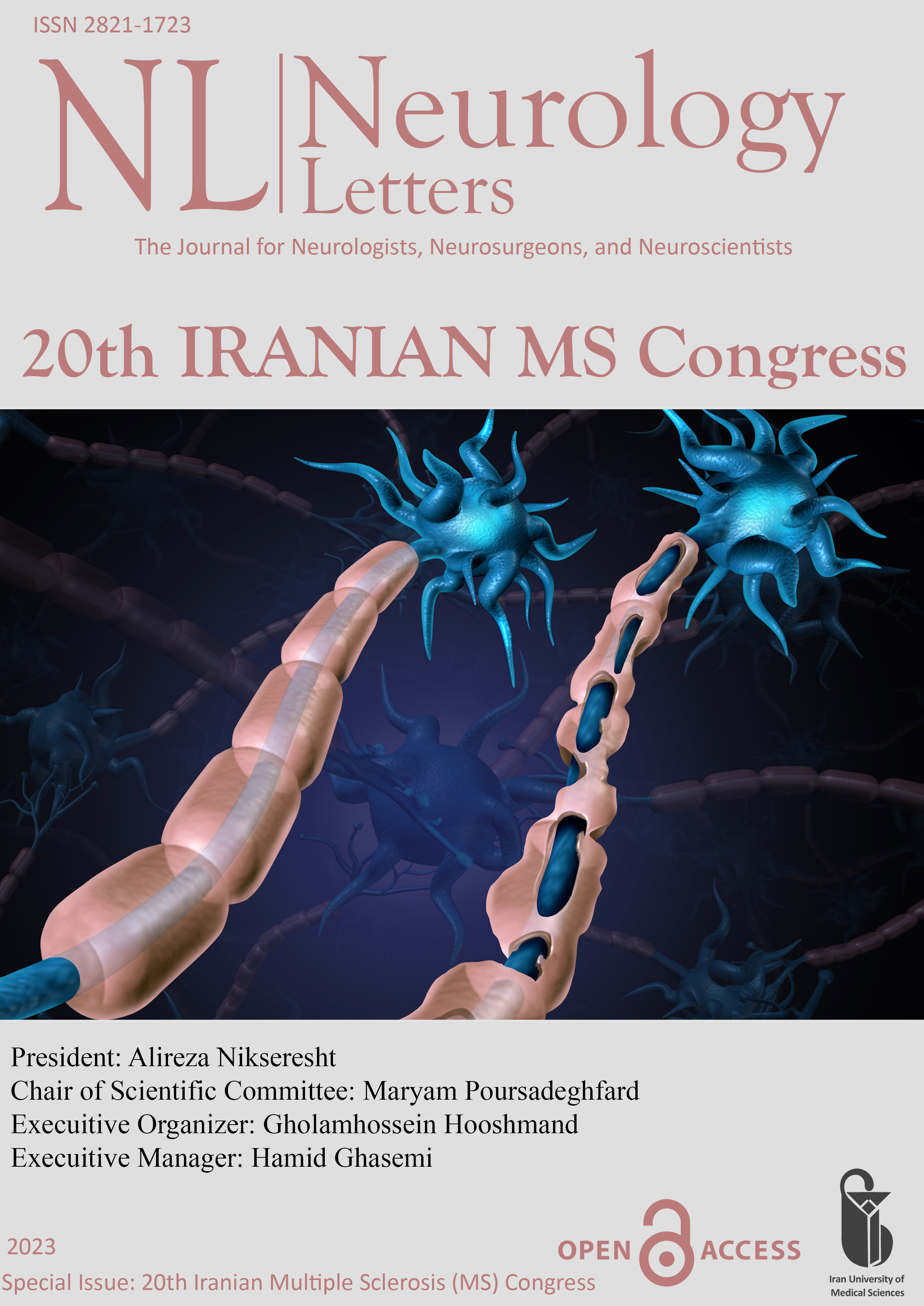Gut-Brain axis and MS: Is this true? (ORP-29)
Document Type : Oral Presentation
Author
Neurology department of Mashhad university of medical science, Mashhad, Iran
Abstract
Multiple sclerosis (MS) is an autoimmune disease of the central nervous system (CNS), that is associated with demyelination and axonal damage, and mainly affects young people, the main cause of the disease remains undetermined, but probably a number of etiologic and epidemiologic factors are involved. The gut-brain axis is a communication pathway for the exchange of information between the microbiota of the gastrointestinal tract and the nervous system or a link between the external environment and the CNS and may have an important role in the pathogenesis of MS. The intestinal barrier and gut microbiota are the main parts that any change or disruption of them (dysbiosis) lead release of cytokines and other immune cells which may be associated with CNS autoimmune disease such as MS. The enteric nervous system is connected to the CNS through the parasympathetic (via the vagus nerve) and sympathetic (via the paravertebral ganglia) nervous systems. Probiotic supplementation, which can be used to treat gastrointestinal dysbiosis, and calm down the immune system, has beneficial effects on serum levels of some factors associated with systemic inflammation and will be a promising strategy for the prevention and treatment of MS.
Keywords
 Neurology Letters
Neurology Letters
